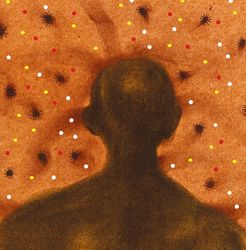We are back to counting cases and variants as the spectre of Omicron haunts the world. But the responses, including many in India, have been short-sighted, full of counterproductive panic and reminiscent of some of the early mistakes of 2020.
Except, today we have many more tools to fight the virus—knowledge of its airborne nature, confirmation that masks in closed indoor places can help, awareness that opening a window can make a difference in a classroom, therapeutic pills of varying success, and above all, vaccines.
Dr Angelique Coetzee, the South African doctor who first detected Omicron, told me she found it on a random rapid-antigen test. That in itself should be a warning against the needless RT-PCR tests travellers are being subjected to at both departure and destination, creating a mass congregation at airports themselves.
Most importantly, she said—and this is now being confirmed by doctors worldwide—that feedback from South African doctors is that the symptoms of Omicron are mild, there is no respiratory failure, no plummeting oxygen levels, good self-recovery by day 6 (unlike in Delta) and most critically, vaccinated patients are doing well at getting better.
In other words, while data will reveal if vaccines have fallen in efficacy because of the high number of mutations on the spike protein of the Omicron variant, they are still offering decent protection against the seventh new variant, especially against hospitalisations and deaths. In fact, there has not been a single death from Omicron so far, despite it now being present in 38 countries.
The lesson, if there is any left to be learnt, is an immediate mandating of vaccines. I understand that coercion is anathema to public health specialists. But when you consider that 12.5 crore Indians are yet to receive their scheduled second jab, their freedom ends where all of society is being damaged.
Those who are declining vaccines—and not from a shortage of supply—are holding up the economy and well-being of our nation. I am glad to see some states moving in this direction. Kerala is declining free treatment to those who are unvaccinated; Karnataka is making vaccine passports necessary for entry into malls and theatres. This is the only way forward. Whether you call it a mandate or not, it is time to link it to so many social, economic and professional activities, that it becomes much like the Aadhaar card—whether you like it or you hate it, you need one.
The other policy that needs urgent attention is vaccines for children. India has already had the largest school shutdown in the world, exacerbated by pollution and now the new variant. Children cannot be kept at home or in online classes any longer without it stunting their mental, social and emotional skills. Moving to operationalise these vaccines, making adult vaccines compulsory and adding a third shot to the repertoire for at least the elderly and frontline workers, is the need of the hour.
Anything else is hysteria. And with it we are not saving lives; we are shrinking the very idea of life.
editor@theweek.in


